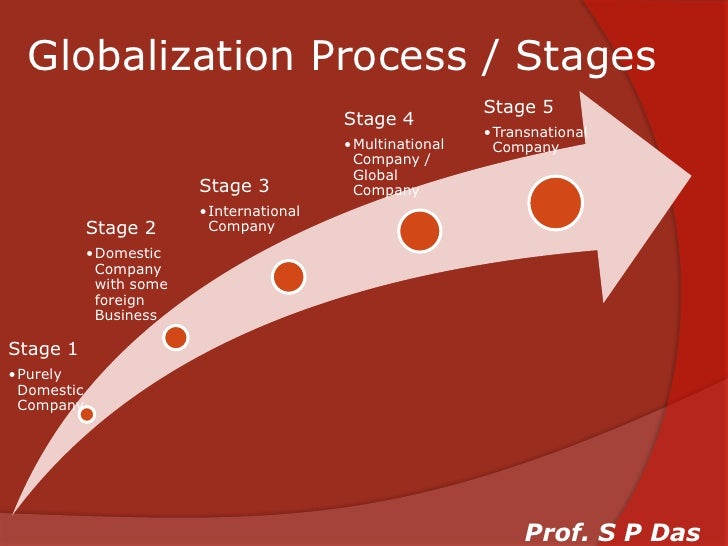The Future Of Globalization
Description
All these countries were members of the European Union, which had to step in to bail out debt-laden nations, which were thereafter known by the acronym PIGS. On one hand, globalization has created new jobs and economic growth through the cross-border flow of goods, capital, and labor. On the other hand, this growth and job creation are not distributed evenly across industries or countries.
These compelling reasons for the huge investment in global supply chains will continue to drive firm behavior. The COVID-19 pandemic has shown us how costly and difficult it can be to unwind these chains. And the recent bounce back in trade is already demonstrating that re-shoring expectations are probably inflated. It would be a mistake to conclude that firms will be willing to bear the often-higher costs and competitive risks of sourcing everything locally in the post-pandemic world. Politics may play more of a role going forward in shaping supply chains, but it will not supersede economics.

When they could no longer roll over their debts, Latin American economies crashed, and a decade of stagnation resulted. But to turn the farm families’ malnutrition into starvation makes no sense. Instead, it could be spending money to bring farmers irrigation, technical help and credit. A system in which the government purchased farmers’ corn at a guaranteed price — done away with in states like Puebla during the free-market reforms of the mid-1990’s — has now been replaced by direct payments to farmers. The program is focused on the poor, but the payments are symbolic — $36 an acre. In addition, rural credit has disappeared, as the government has effectively shut down the rural bank, which was badly run, and other banks won’t lend to small farmers.
In terms of the latter aspect, the existing pattern of globalization is not an inevitable trend – it is at least in part the product of policy choices. Feminists argue that women’s lack of political influence at the global level has not been compensated for by their increased influence in national politics because globalization has undermined national sovereignty, especially in poor nations. Structural adjustment policies require debtor nations to implement specific domestic policies that disproportionately harm women, such as austerity measures, despite strong local opposition. For instance, Wilcox argues that transnational injustices generate strong moral claims to admission for certain groups of prospective migrants. Her second argument maintains that a commitment to relational egalitarianism entails rejecting immigration restrictions that contribute to oppressive transnational structural relations.
But Globalization has also generated significant international opposition over concerns that it has increased inequality and environmental degradation. There is a need to study the impact of globalization on developing countries from the viewpoint of inward foreign direct investment. Attention should also be focused on the role which some developing countries, particularly from parts of Asia and Latin America, are playing as initiators of globalization through their own MNCs.
Regardless the financial performance of Walt Disney, try to imagine what would be the revenues and operating income of Disney if it has never globalise. globalisation problems helps Disney to gain its revenues from all over the world instead of only from its host countries, United States. In this regard, it is important to remember that the ancient silk road was the most prosperous platform from the 7th to the 9th centuries under its bipolar hegemony, with the Tang Dynasty to the east and the Sassanian Persian empire to the west. Surrounding kingdoms encompassing the six different cultures of Central Asia, East Asia, Southeast Asia, South Asia, the Middle East, and Europe flourished. From a broad perspective, the world in the 7th to 9th centuries may resemble the world of today.
- Feminist philosophers strive to accurately reflect the diverse interests, experience, and concerns of women throughout the world, and to take seriously differences in culture, history, and socio-economic and political circumstances.
- But the power of the idea has led to the overly credulous acceptance of much of what is put forward in its name.
- For example, we can see there is more and a biggest opportunity for people in both developed countries and developing countries to sell as many goods to as many people as right now, so we can say this is the golden age for business, commerce and trade.
- Selective policies would direct funds to programs and governments which had success in the past.
The latter, shifted at the click of a mouse, can stampede around the globe in herdlike movements, causing massive damage to fragile economies. Following speculators’ run on the Thai currency, the baht, the poverty rate in rural Thailand jumped 50 percent in just one year. In Indonesia, a mass withdrawal of short-term capital caused real wages in manufacturing to drop 44 percent. Many economists now see a need for some form of control over short-term capital flows, particularly if domestic financial institutions and banking standards are weak.
The rising cost of labour in countries such as China have added pressure on corporations for a rethink of the way their products are made. For example, labour costs are now cheaper in Mexico than in China and short-circuiting the economic model of the latter as the workshop of the world while providing a powerful incentive for American producers to set up shop closer to home. A study by the Reshoring Initiative, in the US, has forecast that the country will add 224,213 jobs from abroad in 2021, an increase of 38 percent on 2020. Investment in strategic products such as semiconductors, electric vehicle batteries and pharmaceuticals are driving the changes, the report says. Development of globalisation can be defined in terms of its many dimensions process, production, trade, consumption, social-economic welfare, financial strength and stability, environment protection disaster management and so on. The objective of globalization is consumer empowerment and strengthening of the worlds’ system.

